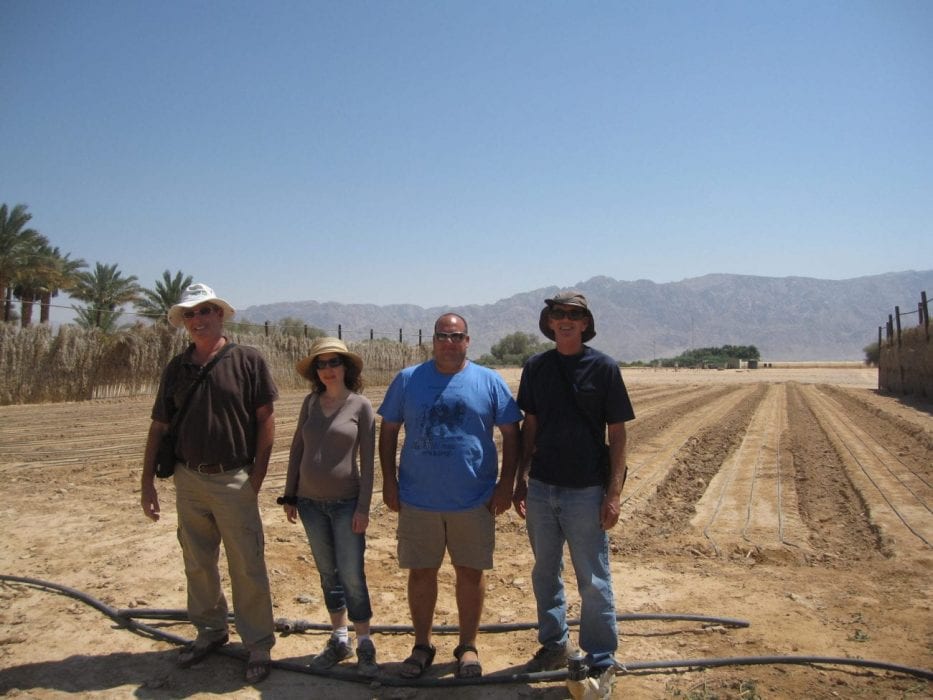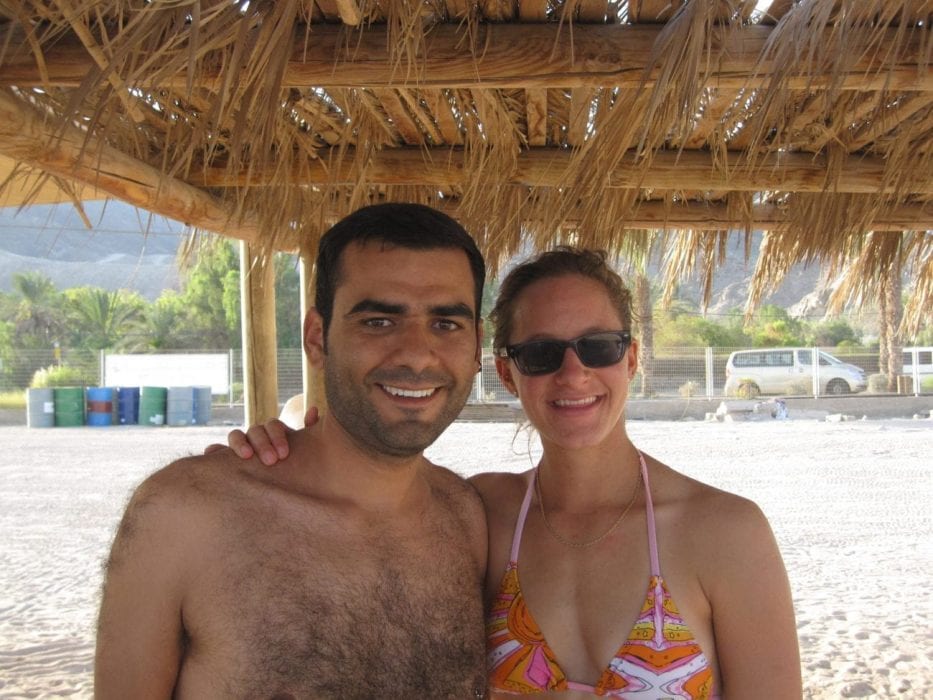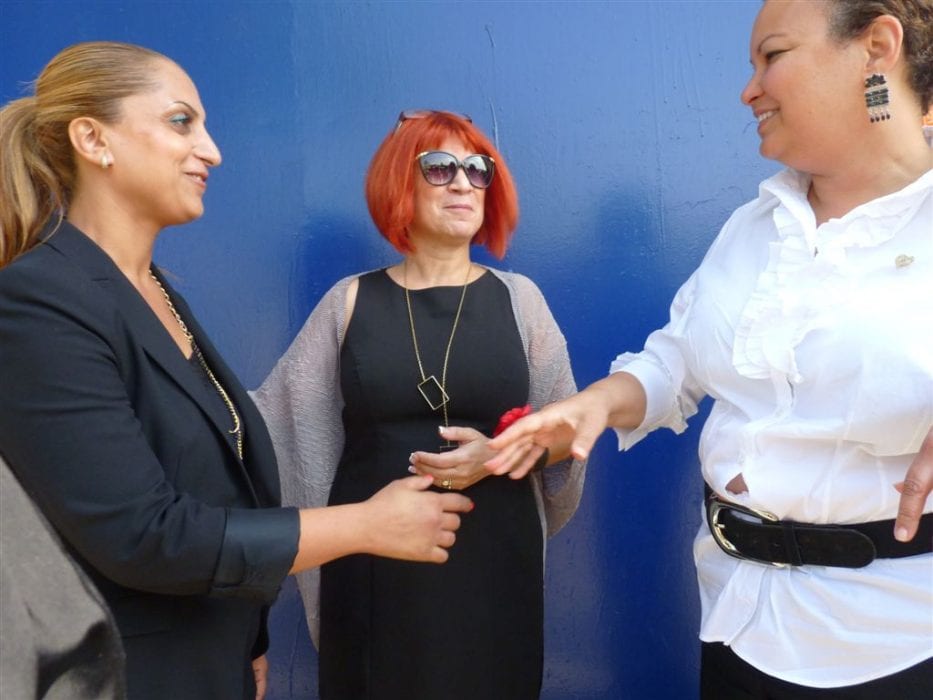Dear Friends,
I have just completed an 11-month Sabbatical from the Arava Institute on which I was able to make significant progress in my quest for my doctorate. I spent most of the year taking classes at Ben-Gurion University of the Negev and developing a research proposal. I am a doctoral student in the Geography and Environmental Development Department. My research is on cost-efficiency in nature conservation in Israel.
My ability to take off the year would not have been possible if Miriam Sharton, the Institute’s associate director, had not stepped up to become the Acting Executive Director of the Institute with a great deal of support from Uri Nusinow, the Institute’s director of finance. Miriam, Uri, and the rest of the dedicated AIES staff met significant challenges this past year but guided the Institute along a path of growth and creativity.
I now proudly return to my position as Executive Director, while Miriam takes a well-deserved break and spends time in the US with her family. I am excited to come back to the Institute. AIES remains the premier trans-boundary environmental academic research center in the Middle East, training the regions future environmental leaders. Our unique and innovative approach to sustainability and cross border cooperation still attracts the best and the brightest scholars, students, researchers, and social activists from all over the world. I look forward to success as we strive towards our vision of a Middle East where nature knows no borders and I wish everyone a happy and sweet new year.
I hope you enjoy this month’s blog.
David Lehrer
—————–
In the last two weeks, senior staff members returned from jam-packed trips to North America, the Institute welcomed a group from the Arava Center for Sustainable Development, and our MASA students and two program associates (both AIES alumni) arrived.
I just returned from an exciting trip to North America, where I fundraised from major donors and met with prospects, strategized with the new vice-chair of our Israel Ride (who announced his goal to increase ridership to 200 bikers by 2015), met with two of our most important partner organizations, the Jewish National Fund and Hazon, and spoke (with AIES’s Dr. Tareq Abu Hamed) at First Narayever Synagogue in Toronto about the Arava Institute’s work. The highlight of the trip was the successful establishment of a Masters Degree Renewable Energy track with York University in Toronto, where Tareq and I traveled to meet with enthusiastic faculty. The university will sponsor one Palestinian student, one Israeli student, and one Jordanian student each year and grant them a Masters Degree in Environmental Studies with a renewable energy specialization based on two semesters at the Arava Institute, two semesters at York, and a research thesis. This exciting project exemplifies the innovative spirit and cross-border focus of the Arava Institute, and we look forward to bringing it to fruition.
Dr. Elaine Soloway, director of our Center for Sustainable Agriculture, returned from a 15-day trip to the United States, where she visited with family and advanced two exciting projects. First, at the highly regarded Tufts University School of Medicine in Boston, Elaine met with department heads and toured their labs, which are part of an enormous research facility “like a city inside a city,” she said. The visit was the culmination of 12 years of attempts to set up a joint research project focusing on medicinal plants, a project now slated to begin next month. The study will focus on 50 desert plants every year. After dividing the 50 plants into five fractions ranging from most hydrophilic to most lipophilic, researchers will check the plants against four disease targets, giving them 1,000 chances to discover a therapeutic molecule that can be used to develop a new generation of medicines. Researchers hope to find treatments for infectious diseases, neurodegenerative diseases, cancer, or wound healing. Some of the plants are already domesticated, but “some are relatively unknown and have never been tested,” she said. The partnership with Tufts will generate funds for this pioneering project and for the Arava Institute’s work in general. Second, Elaine visited the Bronx Botanical Garden at the request of the head of the garden. The exchanged “wish lists” for plants and Elaine has been invited back to lecture there next year.
During United States Environmental Protection Agency Administrator Lisa Jackson’s trip to Israel, Miriam Sharton and Dr. Clive Lipchin met with Ms. Jackson to present the Arava Institute’s work. In Holon, at one of the schools affiliated with the Youth Environmental Education Peace Initiative, Ms. Jackson met with principals of a Jewish school and an Arab school in the YEEPI program and with the students participating in it. Miriam presented the Arava Institute’s work in general and Clive presented about his transboundary water management project that receives funding from USAID. At left, Ms. Jackson shakes hands with the two school principals present at the meeting.
A team of professionals and volunteers preparing for a trip to Turkana, Kenya, where they will train formerly nomadic locals in sustainable agriculture techniques, visited the Arava Institute under the aegis 
Our 2012-13 program associates have arrived! Abra Berkowitz (a program participant in 2009-10) graduated from Lafayette College with a BA in literature and minor in environmental studies and is currently working on her Masters thesis for Ben-Gurion University of the Negev at its Sede Boqer campus.
Mustafa Ali, a student in fall 2011 and spring 2012, hails from Amman, Jordan, where he lived on Rainbow Street before moving to Kibbutz Ketura. He earned his BA in Chemistry from Al Albayt University in Mafarq, Jordan, and was attracted to the Institute by its renewable energy initiatives. During his year as a student, he conducted research with Dr. Tareq Abu Hamed on hydrogen production via metal hydrolosis. He plans to obtain his Masters in environmental science or renewable energy in the next few years.
Five students and interns on MASA grants arrived last week to start the Hebrew classes that are a condition of their scholarships. We’re excited to have new interns working under Dr. Elli Groner and Dr. Clive Lipchin, and the students are enjoying acclimating to kibbutz life in the weeks before their classmates arrive.


